
Presentations made painless
- Get Premium

113 Mental Health Essay Topic Ideas & Examples
Inside This Article
Mental health is a crucial aspect of overall well-being, yet it is often overlooked or stigmatized in society. Writing about mental health can help raise awareness, reduce stigma, and promote understanding and empathy. If you are looking for inspiration for your next mental health essay, here are 113 topic ideas and examples to get you started.
- The impact of social media on mental health
- The stigma surrounding mental illness in society
- How to support a loved one with a mental health condition
- The benefits of therapy for mental health
- The relationship between physical and mental health
- The role of exercise in improving mental health
- Mental health in the workplace
- The connection between trauma and mental health
- The importance of self-care for mental health
- Mental health in the elderly population
- The impact of substance abuse on mental health
- The role of genetics in mental health conditions
- The relationship between sleep and mental health
- Mental health in the LGBTQ+ community
- The effects of chronic stress on mental health
- The link between nutrition and mental health
- Mental health in children and adolescents
- The impact of technology on mental health
- The benefits of mindfulness for mental health
- Mental health in marginalized communities
- The role of medication in treating mental health conditions
- Mental health in the military
- The connection between mental health and creativity
- The impact of climate change on mental health
- Mental health in the criminal justice system
- The effects of bullying on mental health
- The relationship between mental health and homelessness
- The role of music therapy in mental health treatment
- Mental health in the refugee population
- The impact of childhood trauma on adult mental health
- The benefits of art therapy for mental health
- The effects of social isolation on mental health
- The role of spirituality in mental health
- Mental health in the immigrant population
- The connection between mental health and physical illness
- The impact of peer pressure on mental health
- The benefits of journaling for mental health
- Mental health in the entertainment industry
- The relationship between perfectionism and mental health
- The effects of social comparison on mental health
- The role of pets in improving mental health
- Mental health in the age of technology
- The connection between mental health and climate change
- The impact of social media influencers on mental health
- The benefits of volunteering for mental health
- Mental health in the education system
- The relationship between mental health and addiction
- The effects of discrimination on mental health
- The role of exercise in preventing mental health conditions
- Mental health in the aging population
- The connection between mental health and chronic illness
- The impact of poverty on mental health
- The benefits of group therapy for mental health
- The relationship between mental health and personality traits
- The effects of childhood neglect on adult mental health
- The role of mindfulness in preventing mental health conditions
- The connection between mental health and physical health
- The impact of social media on body image and mental health
- The benefits of cognitive-behavioral therapy for mental health
- The relationship between mental health and financial stress
- The effects of trauma on mental health
- The relationship between mental health and social support
These are just a few ideas to get you started on your mental health essay. Remember, mental health is a complex and multifaceted topic, so feel free to explore different angles and perspectives in your writing. By shedding light on mental health issues, you can help promote understanding, empathy, and support for those who may be struggling.
Want to research companies faster?
Instantly access industry insights
Let PitchGrade do this for me
Leverage powerful AI research capabilities
We will create your text and designs for you. Sit back and relax while we do the work.
Explore More Content
- Privacy Policy
- Terms of Service
© 2024 Pitchgrade
Mental Health - List of Free Essay Examples And Topic Ideas
This section is dedicated to argumentative and persuasive essays on mental health awareness in the United States. Mental illness and psychological problems are social issues that require a solution. A student can represent their point of view and perspective through an argumentative essay about mental health. What causes this problem and which is the solution would be perfect subjects for this type of paper.
It’s always a challenging task for students to reflect on illnesses, so to get a hint on how to start writing, you can look at the thesis statement and research paper samples on mental health on our website.
As often, start with a coherent introduction, outline, and title planning the structure of a paper. Consult research essay topics and argumentative topics if necessary.
Having studied all the samples, topics for ideas, and mental illness essay examples compose the main part, giving reasons for the mental diseases, ways to cure them, and arguments on why a mental illness should be considered a severe health problem.

Supply of Mental Health Insurance Coverage
Introduction Affordable medical care provisions offers the best services for mental health, this is after the introduction of the Affordable Care Act. The act requires that all individuals and employers subscribe to the insurance benefit plan. Purity in mental health acts like a rectifier of unfairness in the health insurance. However due to the increasing mental problems the total spending has increased, based on results from the health insurance companies (Schroeder, 2012). Another evidence has suggested and found it prudent […]
Mental Health Counseling
I am a mental health social worker at a mental health agency. My major role in the agency is to counsel the mentally ill clients. The counseling is as a result of the ideology that individuals with serious mental illness are examined to encounter a variety of barriers that are likely to impede their development in career. Competencies for the course The mental health counseling has different competencies that include having genuine interest in others. In this, one is required […]
Psychiatric Nurse Practitioner
Particularly most of the trained nurses theatres a vital role in mental health depending on field of specialty. Hence, in this level my main concept of concern will be based psychiatric nurses with which have chosen to pursue for my masters level. Regardless of the education, I am ascertained by the specialization and exposure as it gives skills to handle some of the technical responsibilities with most of the patients. This practitioners serve primarily in the care of mental health […]
We will write an essay sample crafted to your needs.
Social Media and Mental Health
Technology. Are we better off with it or without it? Can we keep up with the problems that it causes? These are the questions that are on everyone’s mind, especially those of us who deal with adolescents. Those of us who basically grew up last century (1950 – 1980) saw a lot of changes in technology. Those changes for the most part were ones that made daily life better. The television, computers, the internet, and different parts of the medical […]
Mental Health and Obesity
The obesity rate in America is at an all-time high, and it seems there is no end in sight. Obesity not only affects adults, but children as well. The Center for Disease Control and Prevention (CDC) defines obesity as “Weight that is higher than what is considered as a healthy weight for a given height.” (CDC, 2016) Soccer not only improves physical health and lessens obesity, but also mental health. Working out at least once a day makes a person […]
Effects of Childhood Trauma on Children Development
Anyone can experience trauma at any time. The trauma can be caused by nature, human beings or by oneself. People endure much when they experience trauma and their ability to handle it can determine the level of the effect of the trauma and their long-term well-being. Reportedly, children are incredibly susceptible to trauma because their brain and coping skills are still developing. Thus, they often grapple with long terms effects of uncontrolled trauma. While childhood trauma may vary regarding pervasiveness […]
Mental Health Concerns for Children in Foster Care
Child maltreatment often results in removal from the parental home and increases the risk for behavioral health concerns. The foster care experience can further increase this risk. It is therefore wise to consider aspects of mental health for children in foster care including prevalence, risk, treatment, and policy recommendations. Keywords: child maltreatment, foster care, mental health, behavioral health, adverse childhood experiences Children who have experienced maltreatment are often placed in foster care. Not only does child maltreatment increase the risk […]
Veterans Mental Health Care
Mental health disparities affect a large amount of population across the United States. However, nobody is more affected by unstable mental health than those members of the military and their families. With the increase in the need for security in different areas of the world, military soldiers are deployed to assist in securing and protecting those areas. Often, these soldiers see combat and are affected in their mental state. Not only are the soldiers affected by the deployment, their families […]
Effects of Childhood Trauma on Development and Adulthood
It is no secret that experiencing childhood trauma can have many negative effects on an individual’s life both in childhood and adulthood. Trauma can include events such as physical or sexual abuse, surviving a serious car accident, witnessing a violent event, and more. As trauma is defined in the dictionary as a deeply distressing or disturbing experience, it is no surprise that a disturbing event during childhood can have negative effects throughout an individual’s lifetime. However, this paper will dive […]
The Mental Health Stigma
Mental health holds no bias on who it targets, no matter your gender, race, religion, sexual orientation or country you reside in, you or someone you know can suffer from a mental health disorder. Regardless of how merciless mental disorders can be, there is still an overbearing stigma behind it all. Some say it doesn’t exist, others say you are “crazy” and most importantly it is not acceptable to talk about in schools or at work without fear of being […]
Mental Health Problem Solution
As many know, mental illness has affected many individuals for quite some time, affecting individuals from every age spectrum, and for some disorders, every recorded era. Many have developed different ways to treat their illness. Some help and some showed no progress. But why is it still so relevant, yet irrelevant, in our current society? Many know it exists, yet, they stay narrowly-minded fixated to only physiological health issues. Many theorize that it may be because of some medical field’s […]
Applied Behavior Analysis and its Effects on Autism
Abstract During my research i have found several studies that have been done to support the fact that Applied Behavioral Analysis (ABA) does in fact make a positive impact on children with Autism through discrete trials. It is based on the thought that when a child is rewarded for a positive behavior or correct social interaction the process will want to be repeated. Eventually one would phase out the reward. Dr Lovaas, who invented this method, has spent his career […]
How Cyberbullying Impact on Mental Health
Abstract Cyberbullying has been at an all time high since the invention of technology. With the use of cell phones and the internet it now easier then ever for adolescents to bully one another through text messages, social media, and through email. The internet it an extraordinary piece of technology but it can also be used to bully others. The majority of adolescents who bully through the internet or text messages don’t understand or know the dangers and how harmful […]
Soldier’s Mental Health in all Quiet on the Western Front
All Quiet on the Western Front is a novel written by Erich Maria Remarque, and this book is based on the setting of World War 1. It explores the perspective of a German soldier named Paul Baumer going through his experience of being in the war and giving the readers the lens about the reality of war. The book also focuses on the soldiers’ feelings on the detachment from the civilian life they felt when returning home from the front. […]
The Impact of Friendships on a Woman’s Mental Health
Abstract Friendships are one of the most valuable relationships we have on this planet. I would almost say that we need it as much as we need food and water. Because God created us as relational creatures, we crave relationships with each other (Matthew 22:36-40 New International Version). We cannot survive without closeness to one another. In her article Roberto stated that “friendships are an important part of the informal social network of most older adults” (Roberto, 1997 p.1). There […]
The Negative Effects of Social Media on Mental Health
The rapid growth of social media began in the early 2000s and has not slowed down since. The most popular platforms include Instagram, Snapchat, YouTube, and Facebook which all allow people to share photos and videos of themselves, their family and friends, their everyday activities, express their own views and opinions and connect in so many other ways. It has given a voice to anyone with access to a computer or phone and also helps enhance learning opportunities. But social […]
Drug Abuse – Destructive Pattern
Drug abuse is the destructive pattern of using substances that leads to uncounted problems and diseases in the human body. It is a physical and psychological term which takes dependence on human activities. Drugs create bad effects on human life like anxiety, impaired social relations, depression, hopelessness, rejection etc. Impaired social relations and suicide are considered the worst consequences of addiction. The drugs have negative consequences on one's life. If the addicts were able to see the reality of their […]
Mental Health in Schools
Gun safety and mental health concerns have been at battle for many years and have currently escalated with the rise in school shootings across the country. Research about what schools have done to prevent such travesties are interesting to note. Are zero tolerance policies really effective? Or do these issues stem beyond the trigger? Student and teacher protestors can be seen outside state capital and national buildings urging lawmakers to make changes to the policies regarding state and national gun […]
Mental Health of Teens and the Catcher in the Rye
What people never understand is that depression isn't about the outside; it's about the inside, a quote asserted by Jasmine Warga. Associating with the black cloud of depression by concealing one's true feelings is the way many people were brought up by. Depression has a way of silently striking a person, similar to the way it overtook Holden Caulfield, in the book The Catcher in the Rye (genre: literary realism), written by J.D Salinger. Although Holden Caulfield was never clearly […]
Mental Health and Social Media
On June 14th, 2017, 12-year-old Mallory Grossman took her life away after being told to kill herself on Snapchat. A girl who was extremely involved, bright, and enthusiastic, was completely tormented by bullies online. It all started at school, but she could never escape the bullying once she got home and hopped on social media. They sent the 12-year-old mean messages through posts on Instagram and Snapchat, calling her “fat”, “a loser”, and even more cruel, proposing her to kill […]
The Dark Side of Adoption: Mental Health in Adoptees
To an outsider, the idea of adoption may seem as a very fruitful endeavor – the birth family gets spared of the financial and time-consuming burden that can come with having another child while the said adoptee gets placed into a more stable environment, with a family who can provide for them in ways the birth family cannot. While on paper this ideology might ring with a perfect tune, to those who have lived as adoptees know the tone to […]
The Brain of a Psycopath
Psychopathy refers to a complex condition that encompasses affective and interpersonal traits like lack of behavior control, guilt, remorse, lack of empathy promiscuity and glibness (Kiehl). A lot is known about psychopathy assessment however, little is known about the associated brain disturbances. It's a severe mental disorder and believed to affect about 1% of global population (Kiehl). This paper discusses three areas of psychopaths brain including amygdala, the prefrontal cortex and extended paralimbic structures. Psychopaths have minimal activity both in […]
Exercise Benefits for Physical and Mental Health
Everyone knows that exercise helps your physical health and can help you lose weight, but is that the most important part of exercise? The more research that is done on overall health we are finding that exercise doesn’t just help your physical health, but also can help release stress, help your immune system, improve mental health, and help impact the body in almost every way. There is more to it than just going out and running or lifting weights and […]
Importance of Mental Health
What is Mental Health? According to(mentalhealth.gov) “mental health includes our emotional, psychological and social well-being, which affects how we think, feel, act, relate to others and handle stress and everyone is affected by it.” In life, you are faced with countless challenges and some being more extreme than the other. For example, dealing with the loss of a loved one now, although that's something very hard to deal with eventually people with bounce back and cope overtime but sadly some […]
Domestic Violence and Women’s Mental Health
Domestic violence occurs worldwide irrespective of culture, geographical and historical period. There are many factors that cause or lead to domestic violence and they are: Unmet role expectations. Unmet role expectations on the part of the wife or husband could lead to domestic violence in the family. If women fail to fulfil basic domestic responsibilities such as cooking, cleaning, managing household budgets and taking care of child, it often leads to domestic violence. Child care was a source of argument […]
Marijuana Mental Health Depression
Within the past five years there has been an increase in availability for marijuana and an increase in attitudes for marijuana. 20 states have legalized marijuana for medical use (NORML). 8 states have legalized marijuana for medical and recreational use (NORML). Fifty-seven percent of American adults support the legalization, and 69% of American adults believe alcohol is more harmful to your health than marijuana (pewsearch.org). Due to the increased interest of marijuana, it has raised some questions especially concerning mental […]
The Unfamiliar Childhood Disorder – Reactive Attachment Disorder
The purpose of this paper is that a study was conducted for the diagnosis of Reactive attachment dsorder (RAD). This study was assessed with using the Relationships Problem Questionnaire (RPQ) and Reactive Attachment Disorder – Checklist (RAD-C). Chronbach's alpha of was used to test inter-rater, reliability and test-retest reliability (Thrall, Hall, Golden, & Sheaffer, 2009). There were fifty-three parents and caregivers who participated in the study. The first group were composed of children and adolescents who had former diagnoses of […]
Mental Health Screenings and the Effect on Gun Violence
Historically speaking, guns were used for hunting and for protection. In the late 1700's, the Revolutionary War began from Britain's pursuit to take away the colonists weaponry and oppress them. Lexington and Concord was the beginning of the fight for freedom. When Britain surrendered at Yorktown in 1781, the colonists had won their independence. The first constitution called the Articles of Confederation was ratified by all thirteen colonies in 1781 and was in place until 1789 when the U.S Constitution […]
Crime and Punishment: Women Mental Health in Prison
An unsafe living environment is a risk factor for many future crimes, as young women who run away from home to avoid abuse are more likely to get involved in drug distribution, prostitution and property crime (DeHart, 2008). Drug distribution, prostitution and property crime (such as robbery and theft) become their only source of fast and reliable income while substance abuse is an unfortunate and tragic by-product of the drug trade, as many women self-medicate in an attempt to cope […]
Schizophrenia: Mind and Mental Health
Psychological clarity is something that everyone strives for. A mind that is free from abundant clutter and jumbled thoughts that bring on stress and negativity. Everyone wants a mind that is able to recognize what is presented to it. A reliable psyche that is free from hallucinations and unwanted paranoia. Even though clarity can be achieved, certain illnesses can hinder individuals from reaching it. There are a multitude of disorders that affect the mind in more ways than one. The […]
Related topic
Additional example essays.
- Poor Nutrition and Its Effects on Learning
- Substance Abuse and Mental Illnesses
- PTSD in Veterans
- Moving to a New School
- Documentary Film "Three Identical Strangers" Analysis
- Alzheimer's Disease Still Alice
- Where Can We Find Hamlet in Our Lives
- The Thin Documentary Analysis: Eating Disorder
- The Extraordinary Science of Addictive Junk Food
- Drunk Driving
- A Research Paper on Alzheimer's Disease
- Oedipus is a Tragic Hero
How To Write An Essay On Mental Health
Introduction to mental health as an essay topic.
When writing an essay on mental health, it's essential to understand its complexity and significance in today's society. Mental health refers to the state of our emotional, psychological, and social well-being. It affects how we think, feel, and act, and it also helps determine how we handle stress, relate to others, and make choices. In your introduction, define mental health and its importance in maintaining overall well-being. Clarify the specific aspect of mental health you plan to explore, whether it's discussing a particular mental disorder, examining the impact of mental health on various life aspects, or analyzing mental health policies. This introduction should provide a clear context for your essay and highlight its relevance.
Exploring the Various Aspects of Mental Health
Dedicate the main body of your essay to a thorough exploration of your chosen aspect of mental health. If focusing on a specific mental disorder, discuss its symptoms, causes, and treatment options. For a broader approach, you might analyze the factors that contribute to good or poor mental health, such as genetics, environment, lifestyle, and societal influences. Include current research and statistics to back up your points and provide a comprehensive understanding of the topic. Remember to handle the subject with sensitivity and empathy, especially when discussing conditions that may affect your readers or their loved ones.
Addressing Challenges and Misconceptions
Another critical aspect of your essay should be addressing the challenges and misconceptions surrounding mental health. Discuss the stigma often associated with mental illness and its impact on individuals seeking help or treatment. Examine the barriers to accessing mental health care, such as cost, lack of resources, or cultural attitudes. You can also explore common misconceptions about mental health and how they hinder societal understanding and support for those affected. This section is crucial in shedding light on the obstacles faced in the realm of mental health and advocating for a more informed and supportive approach.
Concluding with the Importance of Mental Health Awareness
In your conclusion, summarize the main points discussed in your essay and reflect on the significance of mental health awareness and support. Emphasize the need for open dialogue, education, and comprehensive care to promote mental well-being. Discuss how increasing mental health awareness can benefit individuals and society as a whole, leading to a more empathetic and healthier community. Your conclusion should not only tie together your analysis but also inspire readers to recognize the importance of mental health and advocate for better support and resources in their communities.
1. Tell Us Your Requirements
2. Pick your perfect writer
3. Get Your Paper and Pay
Hi! I'm Amy, your personal assistant!
Don't know where to start? Give me your paper requirements and I connect you to an academic expert.
short deadlines
100% Plagiarism-Free
Certified writers
- Essay Editor
Mental Health Essay
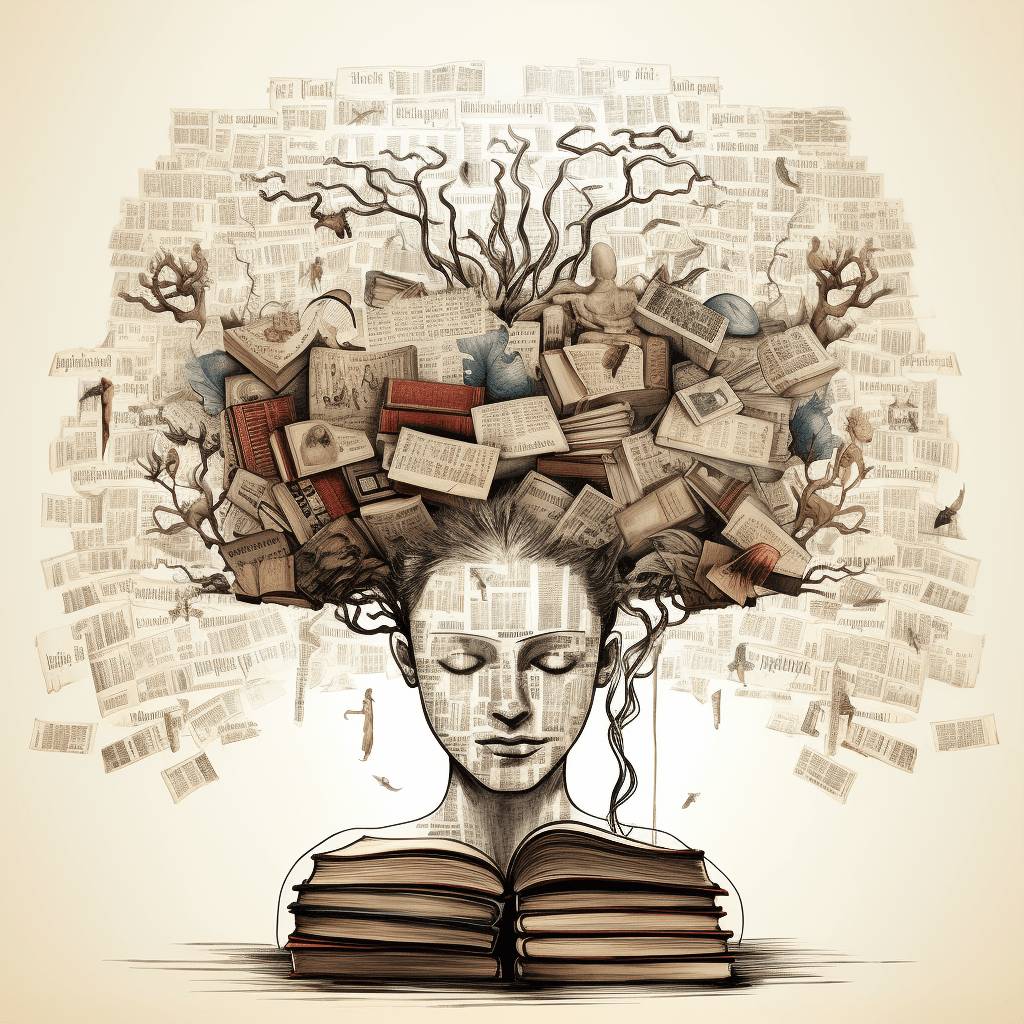
Introduction
Mental health, often overshadowed by its physical counterpart, is an intricate and essential aspect of human existence. It envelops our emotions, psychological state, and social well-being, shaping our thoughts, behaviors, and interactions. With the complexities of modern life—constant connectivity, societal pressures, personal expectations, and the frenzied pace of technological advancements—mental well-being has become increasingly paramount. Historically, conversations around this topic have been hushed, shrouded in stigma and misunderstanding. However, as the curtains of misconception slowly lift, we find ourselves in an era where discussions about mental health are not only welcomed but are also seen as vital. Recognizing and addressing the nuances of our mental state is not merely about managing disorders; it's about understanding the essence of who we are, how we process the world around us, and how we navigate the myriad challenges thrown our way. This essay aims to delve deep into the realm of mental health, shedding light on its importance, the potential consequences of neglect, and the spectrum of mental disorders that many face in silence.
Importance of Mental Health
Mental health plays a pivotal role in determining how individuals think, feel, and act. It influences our decision-making processes, stress management techniques, interpersonal relationships, and even our physical health. A well-tuned mental state boosts productivity, creativity, and the intrinsic sense of self-worth, laying the groundwork for a fulfilling life.
Negative Impact of Mental Health
Neglecting mental health, on the other hand, can lead to severe consequences. Reduced productivity, strained relationships, substance abuse, physical health issues like heart diseases, and even reduced life expectancy are just some of the repercussions of poor mental health. It not only affects the individual in question but also has a ripple effect on their community, workplace, and family.
Mental Disorders: Types and Prevalence
Mental disorders are varied and can range from anxiety and mood disorders like depression and bipolar disorder to more severe conditions such as schizophrenia.
- Depression: Characterized by persistent sadness, lack of interest in activities, and fatigue.
- Anxiety Disorders: Encompass conditions like generalized anxiety disorder, panic attacks, and specific phobias.
- Schizophrenia: A complex disorder affecting a person's ability to think, feel, and behave clearly.
The prevalence of these disorders has been on the rise, underscoring the need for comprehensive mental health initiatives and awareness campaigns.
Understanding Mental Health and Its Importance
Mental health is not merely the absence of disorders but encompasses emotional, psychological, and social well-being. Recognizing the signs of deteriorating mental health, like prolonged sadness, extreme mood fluctuations, or social withdrawal, is crucial. Understanding stems from awareness and education. Societal stigmas surrounding mental health have often deterred individuals from seeking help. Breaking these barriers, fostering open conversations, and ensuring access to mental health care are imperative steps.
Conclusion: Mental Health
Mental health, undeniably, is as significant as physical health, if not more. In an era where the stressors are myriad, from societal pressures to personal challenges, mental resilience and well-being are essential. Investing time and resources into mental health initiatives, and more importantly, nurturing a society that understands, respects, and prioritizes mental health is the need of the hour.
- World Leaders: Several influential personalities, from celebrities to sports stars, have openly discussed their mental health challenges, shedding light on the universality of these issues and the importance of addressing them.
- Workplaces: Progressive organizations are now incorporating mental health programs, recognizing the tangible benefits of a mentally healthy workforce, from increased productivity to enhanced creativity.
- Educational Institutions: Schools and colleges, witnessing the effects of stress and other mental health issues on students, are increasingly integrating counseling services and mental health education in their curriculum.
In weaving through the intricate tapestry of mental health, it becomes evident that it's an area that requires collective attention, understanding, and action.
Short Essay about Mental Health
Mental health, an integral facet of human well-being, shapes our emotions, decisions, and daily interactions. Just as one would care for a sprained ankle or a fever, our minds too require attention and nurture. In today's bustling world, mental well-being is often put on the back burner, overshadowed by the immediate demands of life. Yet, its impact is pervasive, influencing our productivity, relationships, and overall quality of life.
Sadly, mental health issues have long been stigmatized, seen as a sign of weakness or dismissed as mere mood swings. However, they are as real and significant as any physical ailment. From anxiety to depression, these disorders have touched countless lives, often in silence due to societal taboos.
But change is on the horizon. As awareness grows, conversations are shifting from hushed whispers to open discussions, fostering understanding and support. Institutions, workplaces, and communities are increasingly acknowledging the importance of mental health, implementing programs, and offering resources.
In conclusion, mental health is not a peripheral concern but a central one, crucial to our holistic well-being. It's high time we prioritize it, eliminating stigma and fostering an environment where everyone feels supported in their mental health journey.
Frequently Asked Questions
- What is the primary focus of a mental health essay?
Answer: The primary focus of a mental health essay is to delve into the intricacies of mental well-being, its significance in our daily lives, the various challenges people face, and the broader societal implications. It aims to shed light on both the psychological and emotional aspects of mental health, often emphasizing the importance of understanding, empathy, and proactive care.
- How can writing an essay on mental health help raise awareness about its importance?
Answer: Writing an essay on mental health can effectively articulate the nuances and complexities of the topic, making it more accessible to a wider audience. By presenting facts, personal anecdotes, and research, the essay can demystify misconceptions, highlight the prevalence of mental health issues, and underscore the need for destigmatizing discussions around it. An impactful essay can ignite conversations, inspire action, and contribute to a more informed and empathetic society.
- What are some common topics covered in a mental health essay?
Answer: Common topics in a mental health essay might include the definition and importance of mental health, the connection between mental and physical well-being, various mental disorders and their symptoms, societal stigmas and misconceptions, the impact of modern life on mental health, and the significance of therapy and counseling. It may also delve into personal experiences, case studies, and the broader societal implications of neglecting mental health.
Related articles
Can plagiarism be detected on pdf.
Plagiarism has been a challenge for a long time in writing. It's easy to find information online, which might make some people use it without saying where it came from. But plagiarism isn't just taking someone else's words. Sometimes, we might do it by accident or even use our own old work without mentioning it. When people plagiarize, they can get into serious trouble. They might lose others' trust or even face legal problems. Luckily, we now have tools to detect plagiarism. But what about PDF ...
Paraphrasing vs Plagiarism: Do They Really Differ?
Academic assignments require much knowledge and skill. One of the most important points is rendering and interpreting material one has ever studied. A person should avoid presenting word-for-word plagiarism but express his or her thoughts and ideas as much as possible. However, every fine research is certain to be based on the previous issues, data given, or concepts suggested. And here it's high time to differentiate plagiarism and paraphrasing, to realize its peculiarities and cases of usage. ...
What Is Self-Plagiarism & How To Avoid It
Have you ever thought about whether using your own work again could be seen as copying? It might seem strange, but self-plagiarism is a real issue in school and work writing. Let's look at what this means and learn how to avoid self-plagiarism so your work stays original and ethical. What is self-plagiarism? Self-plagiarism, also called auto-plagiarism or duplicate plagiarism, happens when a writer uses parts of their old work without saying where it came from. This isn't just about copying w ...
How To Write Essays Faster Using AI?
Creating various topical texts is an obligatory assignment during studies. For a majority of students, it seems like a real headache. It is quite difficult to write a smooth and complex work, meeting all the professors' requirements. However, thanks to modern technologies there appeared a good way of getting a decent project – using AI to write essays. We'd like to acquaint you with Aithor, an effective tool of this kind, able to perform fine and elaborated texts, and, of course, inspiration, i ...
What is Citation and Why Should You Cite the Sources When Writing Content
When we write something for school, work, or just for fun, we often use ideas and facts from other places. This makes us ask: what is a citation in writing? Let's find out what this means and why it's really important when we write. What is Citation? Citation in research refers to the practice of telling your readers where you got your information, ideas, or exact words from. It's like showing them the path to the original information you used in your writing. When you cite something, you us ...
Plagiarism: 7 Types in Detail
Your professor says that it is necessary to avoid plagiarism when writing a research paper, essay, or any project based on the works of other people, so to say, any reference source. But what does plagiarism mean? What types of it exist? And how to formulate the material to get rid of potential bad consequences while rendering original texts? Today we try to answer these very questions. Plagiarism: Aspect in Brief Plagiarism is considered to be a serious breach, able to spoil your successful ...
Top 10 Use Cases for AI Writers
Writing is changing a lot because of AI. But don't worry — AI won't take human writers' jobs. It's a tool that can make our work easier and help us write better. When we use AI along with our own skills, we can create good content faster and better. AI can help with many parts of writing, from coming up with ideas to fixing the final version. Let's look at the top 10 ways how to use AI for content creation and how it can make your writing better. What Is AI Content Writing? AI content writin ...
How to Write a Dialogue in an Essay: Useful Tips
A correct usage of dialogues in essays may seem quite difficult at first sight. Still there are special issues, for instance, narrative or descriptive papers, where this literary technique will be a good helper in depicting anyone's character. How to add dialogues to the work? How to format them correctly? Let's discuss all relevant matters to master putting conversation episodes into academic essays. Essay Dialogue: Definition & Purpose A dialogue is a literary technique for presenting a con ...
16 Personal Essays About Mental Health Worth Reading
Here are some of the most moving and illuminating essays published on BuzzFeed about mental illness, wellness, and the way our minds work.

BuzzFeed Staff
1. My Best Friend Saved Me When I Attempted Suicide, But I Didn’t Save Her — Drusilla Moorhouse

"I was serious about killing myself. My best friend wasn’t — but she’s the one who’s dead."
2. Life Is What Happens While You’re Googling Symptoms Of Cancer — Ramona Emerson

"After a lifetime of hypochondria, I was finally diagnosed with my very own medical condition. And maybe, in a weird way, it’s made me less afraid to die."
3. How I Learned To Be OK With Feeling Sad — Mac McClelland

"It wasn’t easy, or cheap."
4. Who Gets To Be The “Good Schizophrenic”? — Esmé Weijun Wang

"When you’re labeled as crazy, the “right” kind of diagnosis could mean the difference between a productive life and a life sentence."
5. Why Do I Miss Being Bipolar? — Sasha Chapin
"The medication I take to treat my bipolar disorder works perfectly. Sometimes I wish it didn’t."
6. What My Best Friend And I Didn’t Learn About Loss — Zan Romanoff

"When my closest friend’s first baby was stillborn, we navigated through depression and grief together."
7. I Can’t Live Without Fear, But I Can Learn To Be OK With It — Arianna Rebolini
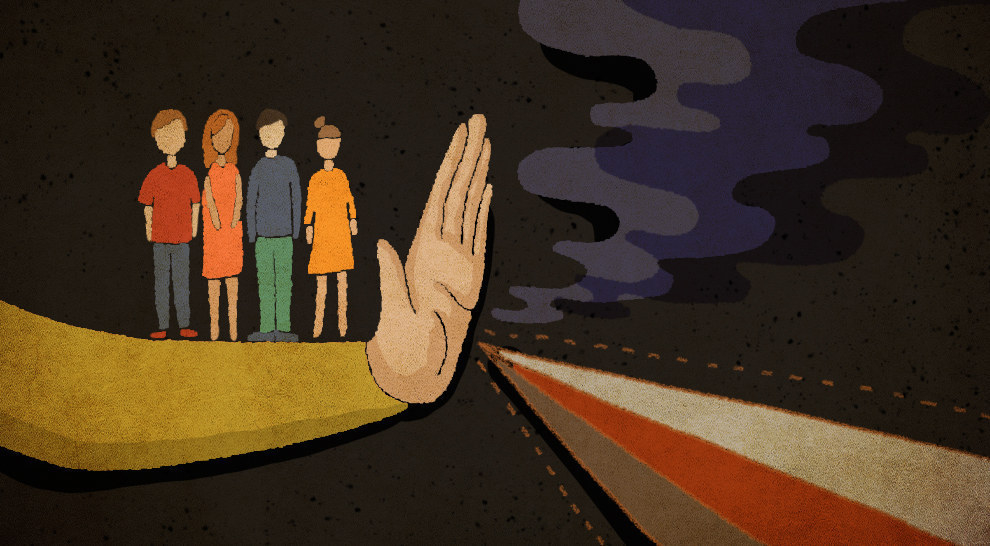
"I’ve become obsessively afraid that the people I love will die. Now I have to teach myself how to be OK with that."
8. What It’s Like Having PPD As A Black Woman — Tyrese Coleman

"It took me two years to even acknowledge I’d been depressed after the birth of my twin sons. I wonder how much it had to do with the way I had been taught to be strong."
9. Notes On An Eating Disorder — Larissa Pham
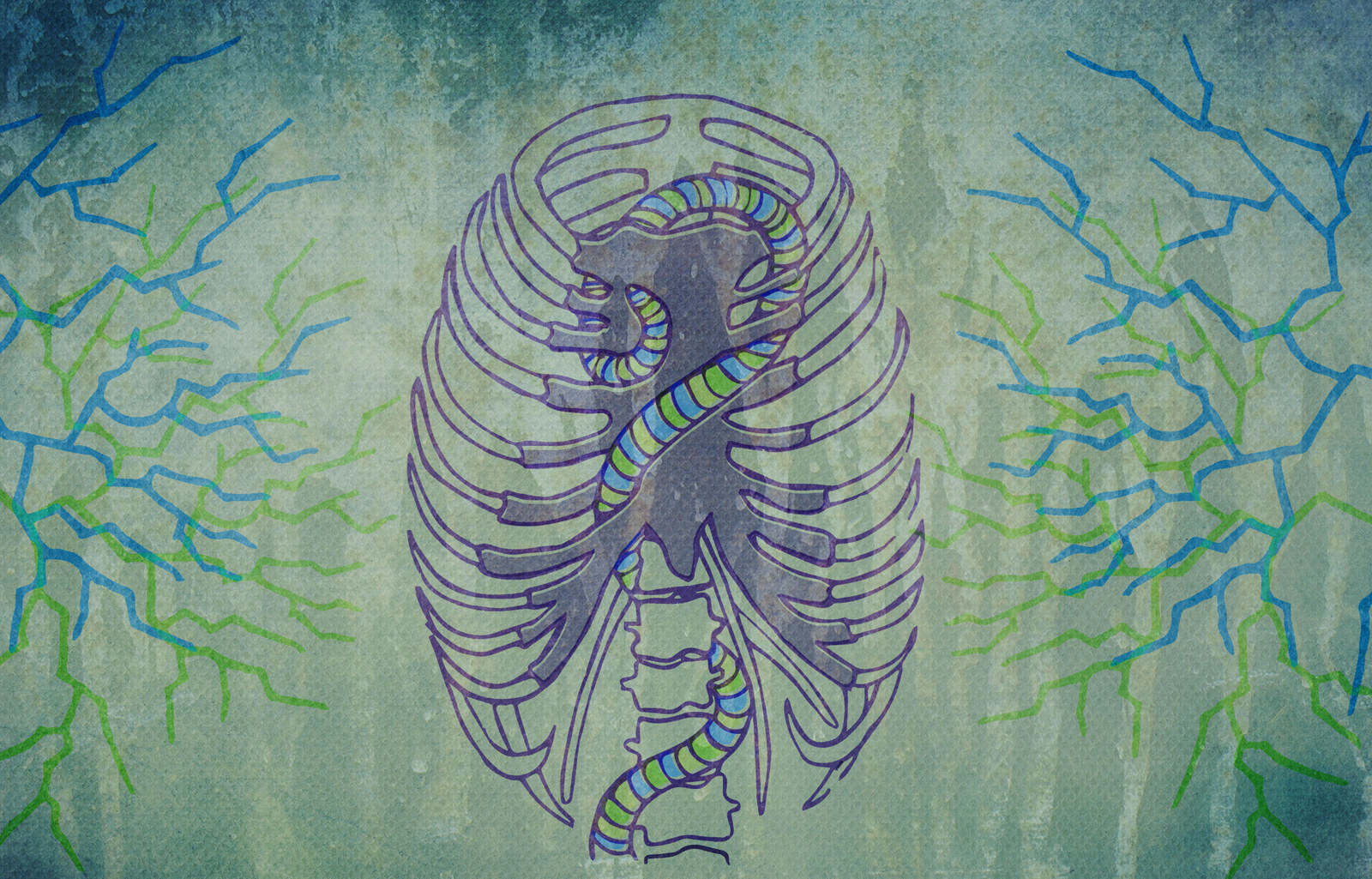
"I still tell my friends I am in recovery so they will hold me accountable."
10. What Comedy Taught Me About My Mental Illness — Kate Lindstedt
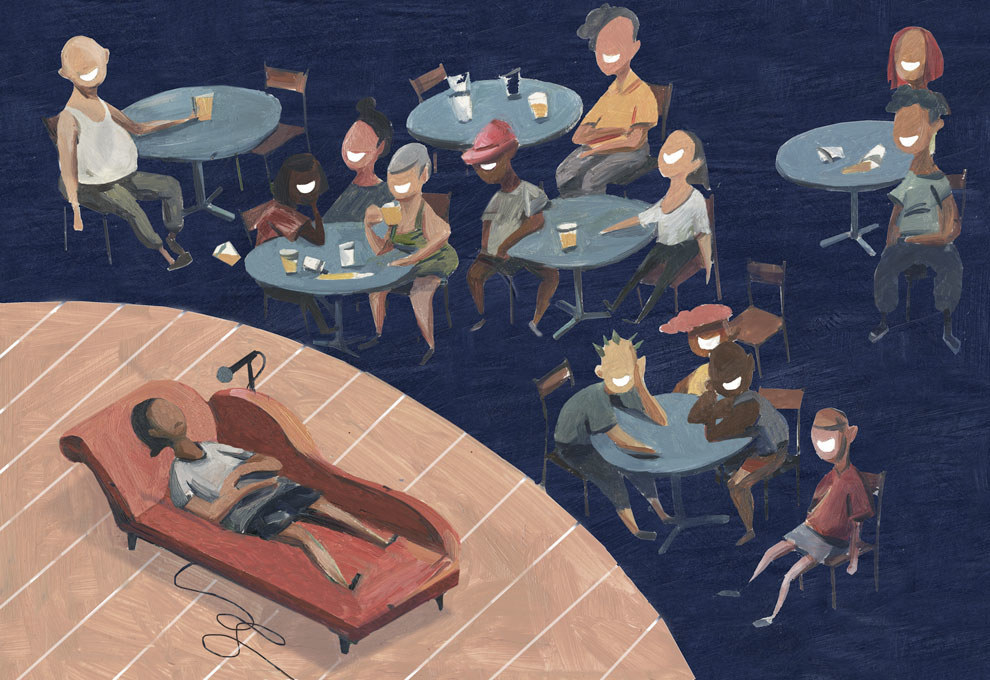
"I didn’t expect it, but stand-up comedy has given me the freedom to talk about depression and anxiety on my own terms."
11. The Night I Spoke Up About My #BlackSuicide — Terrell J. Starr
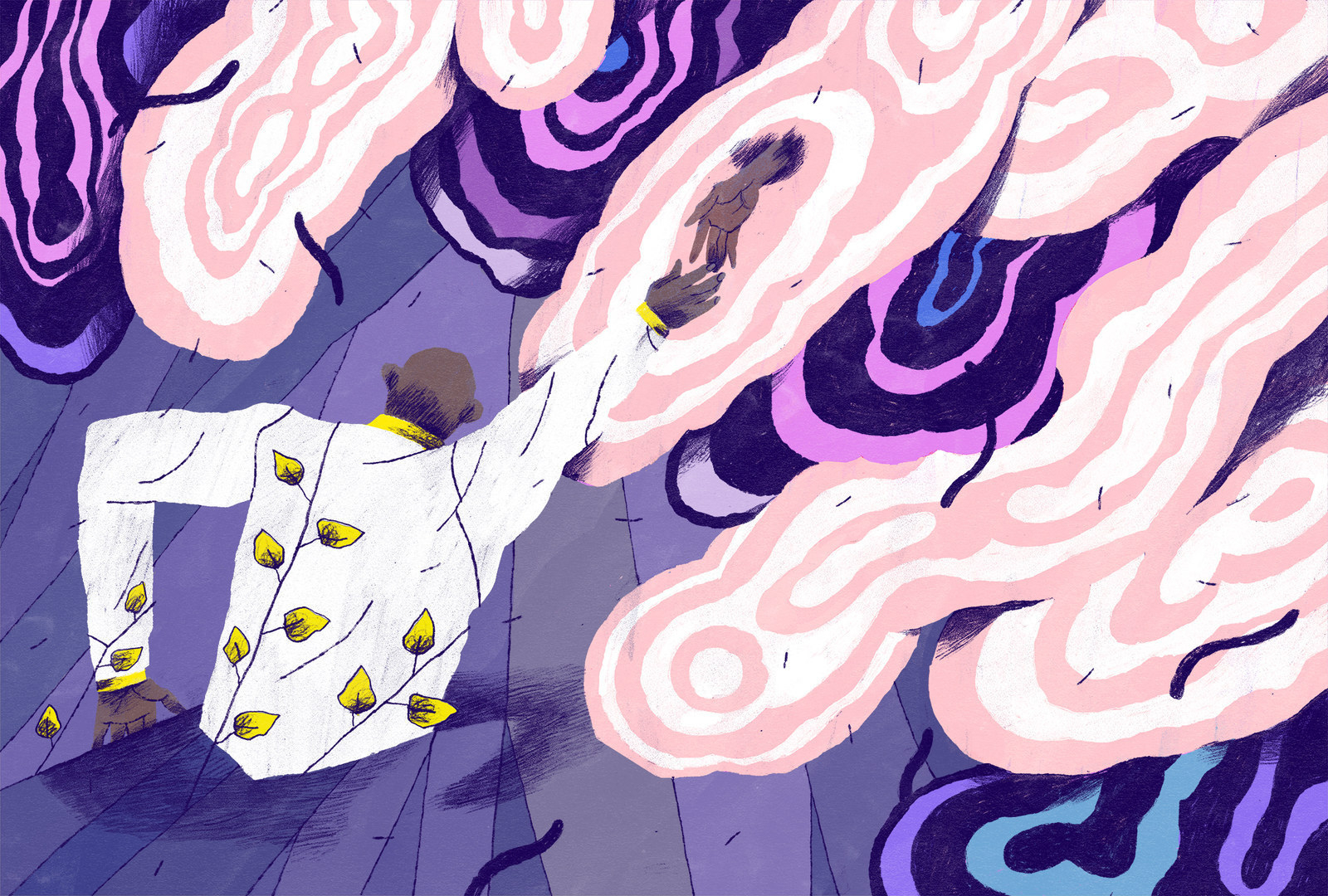
"My entire life was shaped by violence, so I wanted to end it violently. But I didn’t — thanks to overcoming the stigma surrounding African-Americans and depression, and to building a community on Twitter."
12. Knitting Myself Back Together — Alanna Okun

"The best way I’ve found to fight my anxiety is with a pair of knitting needles."
13. I Started Therapy So I Could Take Better Care Of Myself — Matt Ortile
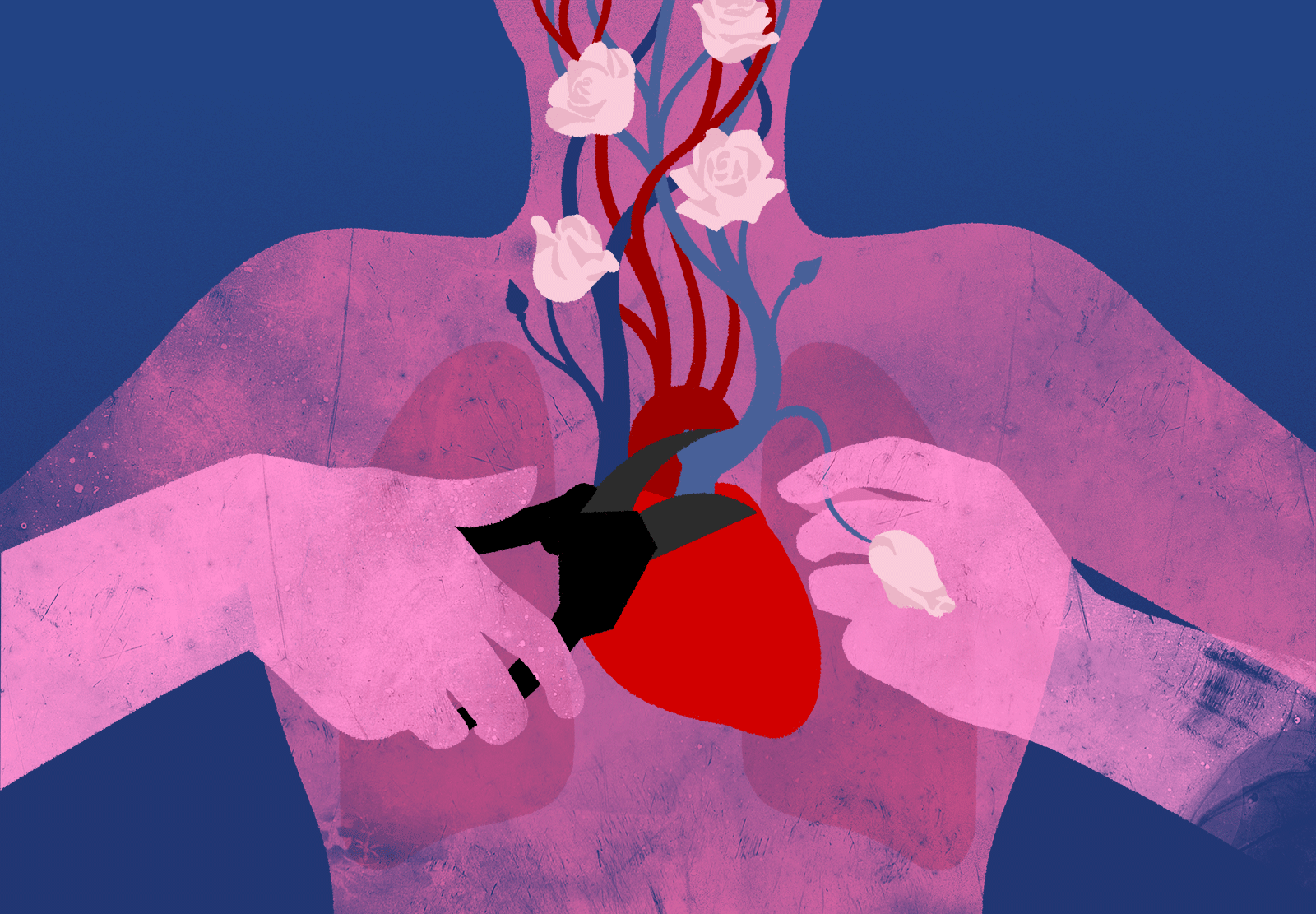
"I’d known for a while that I needed to see a therapist. It wasn’t until I felt like I could do without help that I finally sought it."
14. I’m Mending My Broken Relationship With Food — Anita Badejo
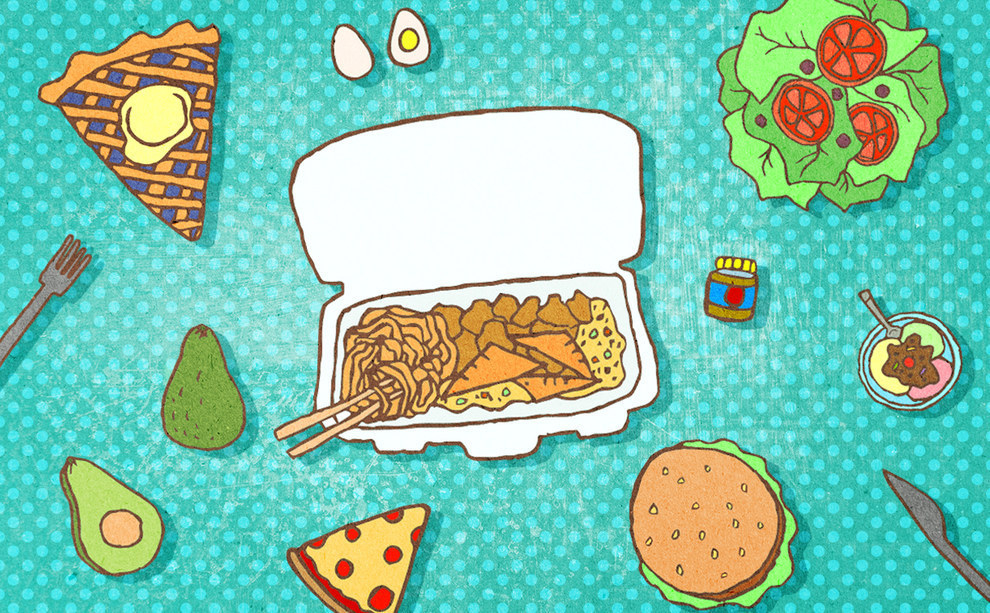
"After a lifetime struggling with disordered eating, I’m still figuring out how to have a healthy relationship with my body and what I feed it."
15. I Found Love In A Hopeless Mess — Kate Conger
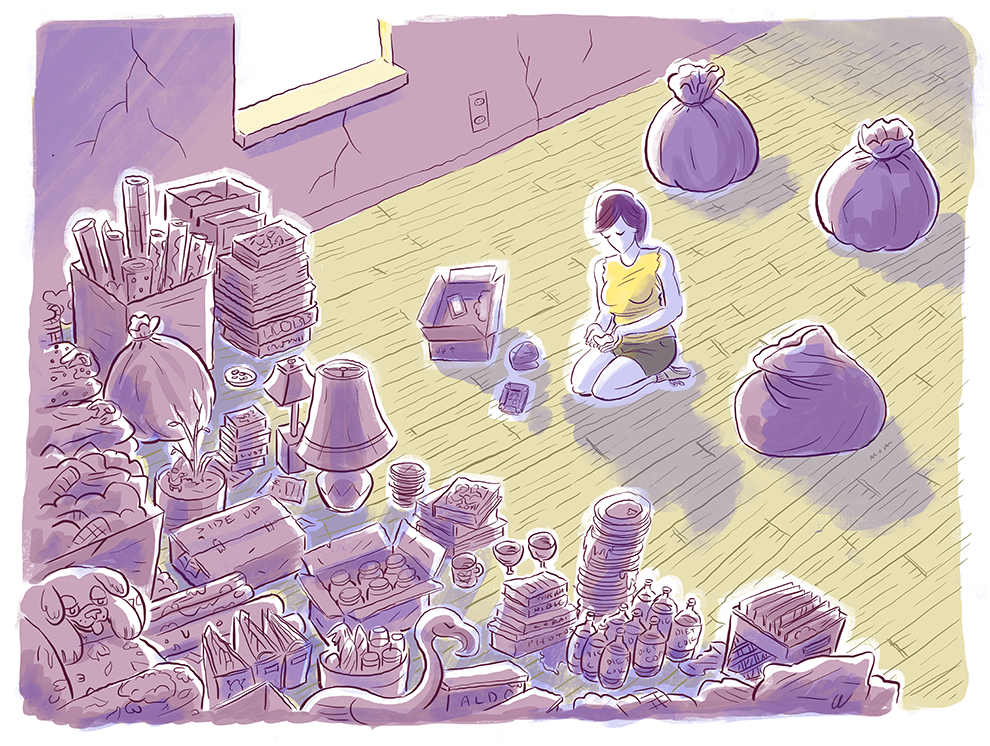
"Dehoarding my partner’s childhood home gave me a way to understand his mother, but I’m still not sure how to live with the habit he’s inherited."
16. When Taking Anxiety Medication Is A Revolutionary Act — Tracy Clayton
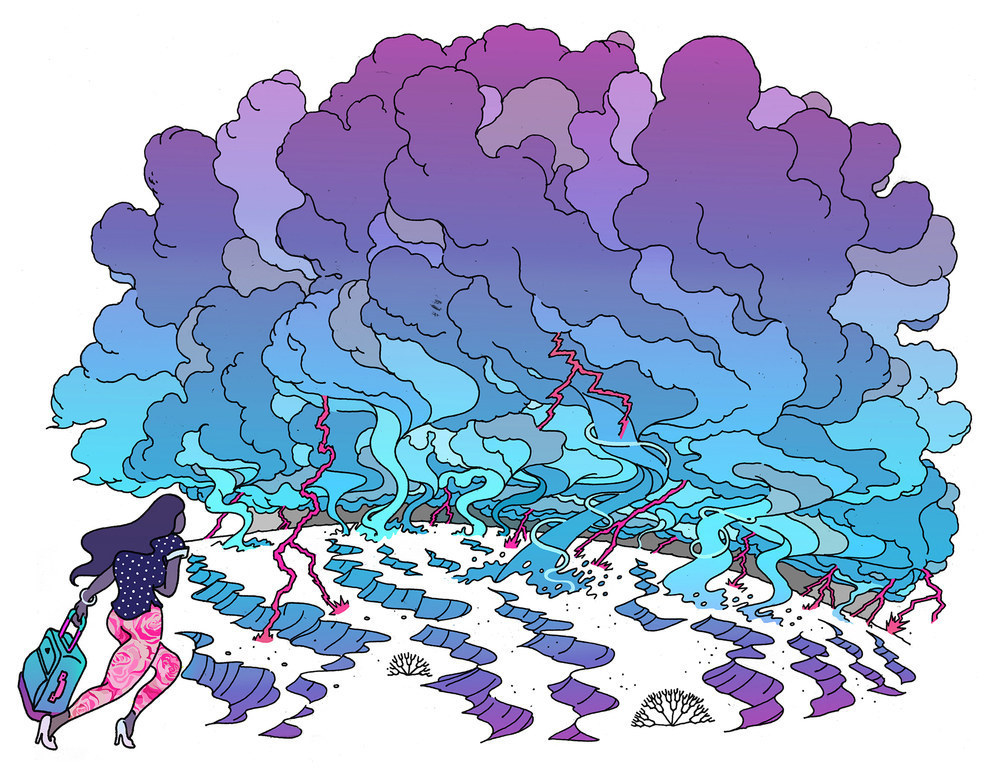
"I had to learn how to love myself enough to take care of myself. It wasn’t easy."
Topics in this article
- Mental Health
Mental Health in Context: A Personal Reflection
Introduction.
Mental health has received a great deal of attention in recent years, highlighting the need for a more thorough knowledge of mental health in many social situations (Howard & Khalifeh, 2020). As I consider the materials and assignments offered in Modules One and Two, I am driven to investigate the topic of mental health from a personal view in various social situations. In addition, I spoke with a family member from a different generation to gain their perspective on the issue since their perspective may give essential insights into how society’s approach to mental health has changed in this essay. I will discuss my personal views as well as those of a family member, as well as an example of the CEO’s response to an employee’s complaint.
Understanding Mental Health in Social Contexts
Before we delve into the conversation with my family member and the case study of the CEO’s response to an employee’s mental health request, it is essential to understand the broader context of mental health in society. Mental health exists on a range, and it is crucial to recognize that every individual falls somewhere on this spectrum (Keeley, 2021). This understanding is fundamental when discussing mental health, as it emphasizes the uniqueness of each person’s experience and challenges the stigmatization of mental health conditions.
Personal Reflections
Based on my knowledge and understanding of mental health, I believe it is not a plastic term. I have come across friends and coworkers who have struggled with mental illness throughout the years, and each one has a unique tale to relate to. Some fought in private, while others sought assistance in public. Despite the fact that society’s opinion of and support for mental health is changing, we are still a long way from removing the stigma. Given my reactions to persons suffering from mental illnesses, I must admit that my understanding has grown. In my younger years, I could have been less empathic and more prone to misinterpreting or even criticizing people in need; however, as I become more familiar with the complexity of mental health. I learnt to approach people with empathy, putting their humanity ahead of their circumstances.

My Family Member’s Perspective
I met with my late fifties uncle to obtain a multigenerational perspective on mental health. He shared his thoughts on how mental health was seen when he was younger and how it has grown through time. My uncle said that when he was younger, mental health was a taboo issue (Ali et al., n.d.). He recalled the prevalent idea that individuals should “tough it out” and that seeking treatment for mental health difficulties was generally viewed as a sign of weakness.
As the talk progressed, my uncle told a personal anecdote of a close friend who experienced severe mental health difficulties in the 1980s. His friend’s hardship mainly remained hidden, and when he did seek aid, he was faced with suspicion and a scarcity of resources. As a result, his friend’s agony was prolonged, and help was fatally delayed.
My uncle went on to express his delight that attitudes about mental health had shifted dramatically in recent years. He stated that society today recognizes the significance of discussing mental health freely and without shame. He also emphasized how the availability of services and support networks has grown, making it easier for people to get the help they require. He highlighted the need to treat people with self-respect and kindness regardless of their mental condition.
CEO’s Response to an Employee’s Mental Health Request
The example of a CEO’s response to an employee’s mental health request, as reported by News.com.au in 2017, exemplifies the obstacles and advancements in understanding mental health in social situations. The CEO’s email answer to an employee’s request for a “mental health day” in the article went viral, eliciting both acclaim and condemnation (AU, 2017).
The CEO began by acknowledging the employee’s request and expressing support for the significance of mental wellness. However, it also conveyed suspicion, implying that the employee’s generation was too sensitive. The CEO mentioned that taking time off for mental health would not have been considered during his early career. He ended the email with a message of encouragement but cautioned the employee to anticipate a different level of empathy from all future employers.
This instance demonstrates numerous critical issues of mental health in social environments (Low et al., 2020). For starters, it reflects shifting views regarding mental health, in which people are more upfront about their issues and the necessity of resolving them. The employee’s request demonstrates the rising importance of mental health in the workplace.
However, the CEO’s reaction highlights the age divide in mental health awareness. While the CEO offered his support, he also expressed concern about the younger generation’s attitude towards mental health (Grob, 2019). This highlights the difficulties of linking the generational divide in understanding mental health as well as the necessity for ongoing education and awareness.
Furthermore, the CEO’s speech raises worries about the level of help that individuals may expect in various social circumstances. While the CEO acknowledged the importance of mental health, his statement about future firms not being as understanding shows that support may not be consistent across different organizations. This difference emphasizes the need for more comprehensive and consistent professional mental health help techniques.
Support and Complications in Mental Health.
As I reflect on the personal and generational perspectives on mental health, it is evident that progress has been made in recognizing its importance. However, there are still various levels of support and complications that individuals face when living with a mental health condition (Organization, 2022).
Support Systems: Mental illness support services include therapy, counselling, drugs, and community services. Companies are introducing mental health initiatives to support employees, but the quality and availability of these services may vary depending on geographical location, financial resources, and employment climate.
Stigma: Despite progress, mental health stigma persists, with many fearing judgment or discrimination. The CEO’s response to an employee’s request highlights the need for ongoing education and awareness to eradicate this stigma despite a more welcoming culture. Addressing antiquated attitudes towards mental health is crucial for a more inclusive and practical approach.
Intersectionality: A personal perspective emphasizes the importance of understanding and addressing the overlapping variables that influence mental health experiences, such as gender, race, financial level and cultural background, to ensure individuals receive appropriate help and overcome challenges.
Preventive Measures: While there is a greater emphasis on assisting those who already have mental health issues, there is still work to be done in terms of prevention. Stress management and resilience building should be emphasized as part of our society’s approach to mental health. In this sense, education and awareness initiatives might be beneficial.
Mental health, a complex and evolving concept, necessitates a ‘person first perspective’ for comprehensive understanding across diverse social contexts (Blakemore, 2019). Reflecting on my journey, insights from my family members, and the CEO’s response to an employee’s mental health request, it’s evident that strides have been made in recognizing mental health’s significance. However, we must persist in DE stigmatization, bridge generational understanding gaps, and ensure consistent support for those with mental health conditions. Our commitment to education, preventive measures, and fostering a society where individuals are treated with empathy and respect, irrespective of their mental health, can pave the way for a future where mental well-being is valued (Patnaik, 2021).
REFERENCES.
Ali, S., Harrichand, J., Shillingford, M., & Herbert, L. (n.d.). A Qualitative Investigation of Guyanese American Perceptions of Mental Health. The Professional Counselor TM , 13 (1), 1–16. https://doi.org/10.15241/sa.13.1.1
AU, N. (2017, July 11). Sick days for mental health get unexpected response from CEO . NewsComAu. https://www.news.com.au/technology/online/social/ceos-reply-to-employee-mental-health-sick-day-email-goes-viral/news-story/8a0b4fd691dd5360cdd201e6e49a5e91
Blakemore, S.-J. (2019). Adolescence and mental health. The Lancet , 393 (10185), 2030–2031. https://doi.org/10.1016/s0140-6736(19)31013-x
Grob, G. N. (2019). Mental Illness and American Society, 1875-1940. In Google Books . Princeton University Press. https://books.google.co.ke/books?hl=en&lr=&id=X1mYDwAAQBAJ&oi=fnd&pg=PR9&dq=he+also+expressed+concern+about+the+younger+generation%27s+attitude+towards+mental+health&ots=DtEhFS185b&sig=gpNC3x_JyXVy7_Se3f50dlHJXOc&redir_esc=y#v=onepage&q&f=false
Howard, L. M., & Khalifeh, H. (2020). Perinatal Mental health: a Review of Progress and Challenges. World Psychiatry , 19 (3), 313–327. https://doi.org/10.1002/wps.20769
Keeley, B. (2021). The State of the World’s Children 2021: On My Mind–Promoting, Protecting and Caring for Children’s Mental Health. In ERIC . UNICEF. https://eric.ed.gov/?id=ED615261
Low, D. M., Rumker, L., Talkar, T., Torous, J., Cecchi, G., & Ghosh, S. S. (2020). Natural Language Processing Reveals Vulnerable Mental Health Support Groups and Heightened Health Anxiety on Reddit During COVID-19: Observational Study. Journal of Medical Internet Research , 22 (10), e22635. https://doi.org/10.2196/22635
Organization, W. H. (2022, June 16). World mental health report: transforming mental health for all . Archive.hshsl.umaryland.edu. https://archive.hshsl.umaryland.edu/handle/10713/20295
Patnaik, D. G. (2021). Positive Psychology for Improving Mental Health & Well-Being. In Google Books . Notion Press. https://books.google.co.ke/books?hl=en&lr=&id=XLEcEAAAQBAJ&oi=fnd&pg=PT5&dq=Our+commitment+to+education
Cite This Work
To export a reference to this article please select a referencing style below:
Related Essays
Addressing food insecurity, harsher punishment for individuals who break the law, american schools need later start times, the challenge of opacity, components of self-assessment in education, collaborative analysis and application of assessment results, popular essay topics.
- American Dream
- Artificial Intelligence
- Black Lives Matter
- Bullying Essay
- Career Goals Essay
- Causes of the Civil War
- Child Abusing
- Civil Rights Movement
- Community Service
- Cultural Identity
- Cyber Bullying
- Death Penalty
- Depression Essay
- Domestic Violence
- Freedom of Speech
- Global Warming
- Gun Control
- Human Trafficking
- I Believe Essay
- Immigration
- Importance of Education
- Israel and Palestine Conflict
- Leadership Essay
- Legalizing Marijuanas
- Mental Health
- National Honor Society
- Police Brutality
- Pollution Essay
- Racism Essay
- Romeo and Juliet
- Same Sex Marriages
- Social Media
- The Great Gatsby
- The Yellow Wallpaper
- Time Management
- To Kill a Mockingbird
- Violent Video Games
- What Makes You Unique
- Why I Want to Be a Nurse
- Send us an e-mail
Mental Health Counseling Admission Essay
- To find inspiration for your paper and overcome writer’s block
- As a source of information (ensure proper referencing)
- As a template for you assignment
A college essay on mental health is a type of writing that requires your preparation. For this purpose, you can check out some examples. Below, we’ve prepared “Why I Want to Be a Mental Health Counselor Essay,” which will help you get inspired and write a successful application to your preferred educational institution.
Mental health counseling is a diverse profession with national standards for education, preparation, and clinical practice. The profession offers help to the ever-increasing number of Americans requiring mental therapy.
Clinical mental health practitioners are highly skilled professionals who provide flexible, consumer-oriented therapy. Mental health counselors offer a variety of services, such as evaluation and diagnosis, psychotherapy, solution-focused therapy, crisis management, substance abuse treatment, and prevention programs.
After carefully researching and critically evaluating my career options, I have decided to pursue a Master’s degree in Clinical Counseling focusing on mental health counseling. This path will propel me toward becoming a mental health counselor. Not only am I an excellent listener with a desire to help the marginalized, but it is also evident that there is a growing need for clinical counselors in the country to safeguard against unemployment.
Furthermore, recent surveys indicate that clinical counselors receive competitive salary packages. Beyond the financial aspect, the mental health field is diverse and rapidly evolving. Much remains to be explored regarding brain function, and consequently, therapeutic methods in this field are not as advanced as in other medical fields. I plan to delve into this study area and uncover as much knowledge and information as possible throughout my career.
The decision to apply for the clinical counseling program in mental health was significantly influenced by an internship I completed at the Carter Center for Mental Health. Founded by Former First Lady Rosalynn Carter, the center aims to reduce the stigma associated with mental disorders in society. Despite increasing media coverage and information dissemination about mental health, myths and misconceptions still prevail in society.
At the Carter Center, I undertook a three-month volunteer internship to gain insight into working as a psychologist. However, after visiting numerous hospitals, outpatient mental health facilities, and hospices, I realized that my true calling might be in mental health counseling.
The internship was an eye-opening experience regarding the challenges faced by mental health patients, including those with depression, substance abuse issues, schizophrenia, eating disorders, personality disorders, and anxiety disorders. Witnessing the struggles of thousands of Americans with mental health disorders, I instinctively knew I had to contribute to the social welfare of this great country.
Cultural diversity and cultural prejudice are prevalent in our lives, and we must acknowledge and responsibly embrace them. Professionals have recently recognized the importance of addressing the challenges in serving culturally diverse populations. Cultural values, beliefs, and assumptions significantly influence mental health workers and other professionals’ service delivery.
These cultural experiences, traditions, beliefs, and assumptions shape our worldview. Thus, professionals should be conscious of their thoughts and strive to separate them from their work. Counselors and clients bring a range of values, attitudes, culturally influenced behaviors, biases, ideas, and assumptions to the therapeutic process. Some mental health professionals and counselors underestimate the significance of these factors in treatment.
I consider myself culturally enlightened, having grown up in a culturally diverse community in New York. This environment has taught me to embrace and appreciate cultural pluralism and diversity. Cultural diversity is an integral element that enriches society.
I have interacted with people from various cultures in school, stores, and my neighborhood, learning that humans are not as different as we sometimes think. We need to treat each other with respect and embrace each other’s beliefs, traditions, and cultural customs.
In addition to the internship, my drive for mental health counseling was subconsciously motivated by a teenage experience. Following the tragic death of my younger sister in a surfing accident, my mother fell into a state of depression. She frequently spoke of seeing my sister in her dreams. This placed a significant burden on my father to maintain family stability. Our relief came after my mother sought help from a post-trauma counselor.
She attended sessions with the counselor and, to our relief and joy, recovered within six months. She coped better with the loss of her daughter and realized that nothing could have been done to prevent the tragedy.
Reflecting on the counselor’s impact on my family, I appreciate this noble profession. I aspire to bring joy to families and individuals by helping them understand and cope with their mental health challenges.
Upon completing my Master’s degree in Clinical Counseling, I plan to practice for five to eight years in outpatient mental health facilities and other relevant settings to gain extensive experience in mental health counseling.
Additionally, I aim to join professional organizations such as the American Psychological Association and the American Mental Health Counselors Association, which require a Master’s degree in a related field and adherence to a strict code of ethics. Eventually, I plan to establish a private practice in New York, New Jersey, or California.
- Evaluation of Ideal Definitions and the Basis of Intelligence Testing
- Psychological Differences Between Immigrants
- Criminal Justice Internship Report
- Problems of Unpaid Internship
- Unpaid Internships and Labor Policies
- Multicultural Psychology in the Contemporary World
- Effects of Word-colour and strategic manipulation in word recognition
- The Emergence of the New Psychology
- Psychological Testing Tools: Intelligence Tests
- “Existence, Relatedness, and Growth Model” by Clayton Alderfer
- Chicago (A-D)
- Chicago (N-B)
IvyPanda. (2019, May 5). Mental Health Counseling Admission Essay. https://ivypanda.com/essays/mental-health-counseling-essay/
"Mental Health Counseling Admission Essay." IvyPanda , 5 May 2019, ivypanda.com/essays/mental-health-counseling-essay/.
IvyPanda . (2019) 'Mental Health Counseling Admission Essay'. 5 May.
IvyPanda . 2019. "Mental Health Counseling Admission Essay." May 5, 2019. https://ivypanda.com/essays/mental-health-counseling-essay/.
1. IvyPanda . "Mental Health Counseling Admission Essay." May 5, 2019. https://ivypanda.com/essays/mental-health-counseling-essay/.
Bibliography
IvyPanda . "Mental Health Counseling Admission Essay." May 5, 2019. https://ivypanda.com/essays/mental-health-counseling-essay/.

Friday essay: Bad therapy or cruel world? How the youth mental health crisis has been sucked into the culture wars
Professor of Psychology, The University of Melbourne
Disclosure statement
Nick Haslam receives funding from the Australian Research Council.
University of Melbourne provides funding as a founding partner of The Conversation AU.
View all partners
Rates of mental ill health among young people are on the rise. Between the years 2020 and 2022, 39% of Australians aged 16 to 24 had a mental disorder in the previous year , compared to 26% in that age range in 2007, and 27% of those aged 18–24 in 1997.
The recent Lancet Psychiatry commission on youth mental health documents equally steep increases in mental illness in the United States, UK and Denmark. Governments, mental health services, educational institutions and parents are struggling to respond. But what is behind these trends?
Two accounts seem to be emerging. According to one, which I’ll call the “cruel world” narrative, young people are distressed because the world is in bad shape and getting worse.
Facing climate emergency, unaffordable housing, precarious employment, rising inequality and other dire mega-trends, they are canaries in a societal coalmine. By this account, the mental health crisis is the direct result of systemic adversity.
The alternative, which I’ll call the “cultural trend” narrative, is a little less bleak. Young people are experiencing more mental illness not primarily because the world is grim and getting grimmer, but because cultural shifts have shaped how they perceive and inhabit it.
This narrative suggests a culture preoccupied with harm creates vulnerability and leads people to view life problems through a psychiatric lens. Adversity and social dislocation undoubtedly contribute to young people’s distress, but the way therapeutic culture frames their suffering makes it worse.
The two narratives offer different prescriptions.
From the “cruel world” perspective, the ultimate causes of the mental health crisis are the basic structures of our society, economy and ecology. Only systemic, macro-level changes can arrest them.
For proponents of the “cultural trend” narrative, the focus of intervention is more micro. We should challenge the social practices and technologies that create vulnerability and undermine mental health.
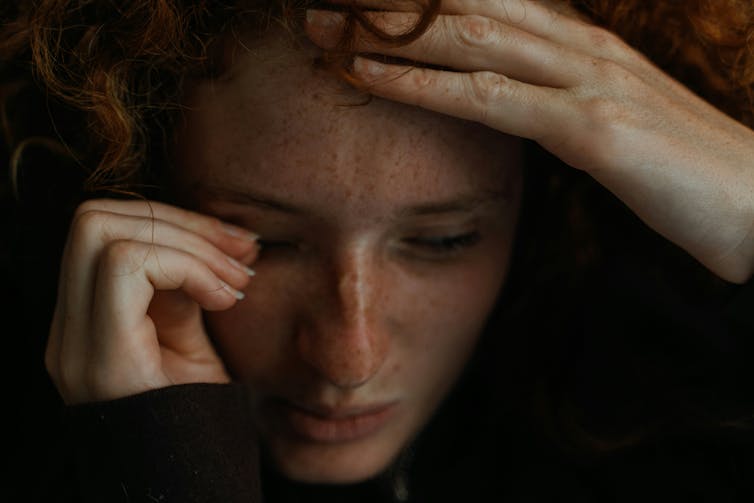
As a social psychologist, I take it as self-evident that adverse social environments play a leading role in the creation of mental ill health: that we can’t isolate human misery from its broader context. However, I’m equally certain that culture plays a crucial part.
A range of cultural changes that could plausibly undermine mental health are well underway: increased immersion in the digital world, rising political polarisation and preoccupation with risk and harm, among others. Separating them from the tangled skein of factors that contribute to the youth mental health crisis is a matter of urgency.
Abigail Shrier’s new book Bad Therapy , a forceful exposition of the “cultural trend” narrative, provides a golden opportunity to explore some of them.
Youth mental health and the culture wars
Journalist and cultural critic Soraya Chemaly’s recent book The Resilience Myth exemplifies the first narrative. Young people are distressed “because the world is distressing, and adults have failed them”. Their sensitivity and emotional honesty place them at higher risk of distress than their elders, and the ubiquity of trauma, oppression and existential climate threat tip that risk into illness.
Chemaly’s solutions lean towards the revolutionary. Her targets include individualism, rigid gender ideologies, capitalism and white supremacy.
Social psychologist Jonathan Haidt’s The Anxious Generation presents a version of the second narrative. Haidt does not deny the magnitude of the challenges young people face. However, he questions whether their rising rates of mental ill health directly follow increases in adversity.
This inflection point in the trajectory of young people’s mental ill health appears to have occurred in the early 2010s. However, many of the systemic trends now held responsible for the crisis – like climate change and rising income inequality – have been building over a much longer period, when rates of ill health were relatively stable. By implication, the precipitating causes must be more specific, recent developments.
Haidt identifies two such changes: the advent of smartphones and “safetyism”. His focus on smartphones has been widely reported . But his equally important emphasis on the cultural preoccupation with protecting us from harm has received less attention.

Haidt argues that parental and institutional over-protection hampers the development of young people’s resilience and autonomy. Citing the idea of “anti-fragility” he proposes that risk, challenge and failure are required to build strength.
By now, it should be obvious that the youth mental health crisis has become politicised, sucked into the vortex of the culture wars.
The crisis can be attributed either to an uncaring system that oppresses the most vulnerable, or to emerging social trends that do young minds no favours. It can be addressed either by progressive social change, such as economic redistribution and environmental protection, or by winding back some damaging cultural developments, such as promoting unsupervised play for children and restricting access to smartphones in schools .
Blaming ‘bad therapy’
Whereas Haidt spends much of his book on the damage done by young people’s immersion in the digital world, in Bad Therapy, Shrier castigates mental health experts for contributing to the crisis they claim to be addressing.

Shrier is a controversial figure. Her previous book Irreversible Damage drew protests and bans for critiquing youth gender medicine and arguing that social contagion plays a role in the rise of girls seeking gender transition.
The former lawyer and Wall Street Journal columnist, who has not previously written at length on mental health, is just as fierce in prosecuting the case against the growing influence of mental health expertise.
Bad Therapy begins by arguing that the rise in mental ill health among young people is not merely a response to deepening life challenges. Instead, Shrier writes, it is driven by destructive cultural shifts and misguided experts. She suggests many people who are experiencing ordinary problems in living have been led to believe their unhappiness is psychiatric in nature.
Shrier is quick to clarify that distress often is genuinely severe. There are “two distinct groups of young people”, she argues: those experiencing “profound mental illness” and “the worriers; the fearful; the lonely, lost, and sad”.
This second group is Shrier’s battleground. These “worriers” have fallen victim to shifts in education and parenting, and to the expansionism of the mental health field. On this point, she doesn’t mince her words. “No industry refuses the prospect of exponential growth,” she writes, and “the mental health industry is minting patients faster than it can cure them.” As a result, “we rush to remedy a misdiagnosed condition with the wrong sort of cure”.
Shrier challenges the common view that mental health interventions – therapy for short – are invariably beneficial. She reviews evidence suggesting therapy is less helpful than it is touted to be, and that it can sometimes be actively harmful. For instance, “psychological debriefing” immediately after exposure to traumas can interfere with recovery .
Mental health treatment can undermine recovery, she suggests, by “hijack[ing] our normal processes of resilience” and creating dependency on professionals. It can crystallise illness by applying diagnostic labels too liberally.
Diagnoses may bring relief to anxious and desperate parents, but they can also affect how their children perceive themselves and are perceived by others. Much like therapeutic staples such as trauma and chemical imbalance , diagnostic terms can convey the view that young people are fundamentally damaged and have little control over their predicaments.
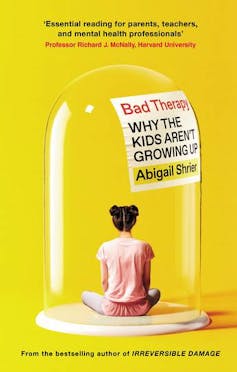
Many of these critiques of therapy chime with familiar attacks on medicalisation . But Shrier also advances some newer criticisms. Mental health treatment can induce rumination and a passive focus on feelings: common features of anxiety and depression. “Bad therapy encourages hyperfocus on one’s emotional states, which in turn makes symptoms worse.”
Therapy can also affirm young people’s worries and encourage public sharing of distress in ways that can entrench unhelpful patterns. “A dose of repression,” Shrier counters, “appears to be a fairly useful psychological tool for getting on with life.”
Mental health workers overlook the possibility that talk therapy can have these adverse consequences, Shrier argues – although it is no less plausible that some psychological treatments may do harm than that some medications can have adverse side effects. Without questioning therapists’ desire to help, she takes the hardheaded view that they have incentives not to acknowledge the harm they may be causing.
Should teachers be delivering therapy?
The clear implication of Shrier’s argument is that we should challenge, rather than expand, therapeutic approaches to young people’s mental health. Instead, she finds that American schools are riddled with bad therapy, often under the banner of “social-emotional learning”.
Shrier maintains that social-emotional learning licenses psychologically untrained teachers to work in a therapeutic mode. It encourages excessive self-focus, demands emotional disclosure and can expose children to dual relationships, all out of view of their parents.
Social-emotional learning and related elements of therapeutic schooling don’t just encourage unhelpful inwardness, she argues. She contends they also use questionable teaching methods and draw time and energy away from academic learning.

Of one effort to smuggle emotional learning into a maths class, Shrier writes: “I began to wonder whether this wasn’t some sort of ploy by the Chinese Communist Party to obliterate American mathematical competence.” She concludes that
social-emotional learning turns out to be a lot like the Holy Roman Empire. Neither social, nor good for emotional health, nor something that can be learned.
Schools’ therapeutic missions also undermine how they educate disadvantaged students. Shrier contends that some “trauma-informed” practice prejudges students who have experienced hardship as fragile and in need of blanket mental health interventions, while lowering expectations for their behaviour and academic achievement. Meanwhile, classroom chaos is created by excessive accommodation of disruptive students.
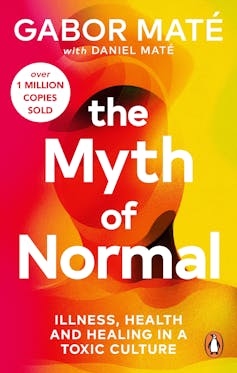
Shrier takes aim at the outsized role “trauma” plays in currently popular accounts of mental ill health. She reserves some of her sharpest criticism for psychiatrist Bessel van der Kolk , whose bestselling book, The Body Keeps the Score, places trauma front and centre in mental ill health, and physician Gabriel Maté , who claims trauma contributes to everything from cancer to ADHD.
Seeing childhood trauma as the buried root of most adult mental health problems conflicts with copious evidence that resilience is the normal response to adversity – and that trauma memories tend to be recalled accurately, rather than locked voiceless in the body. Shrier maintains that the concept of trauma has become trivialised through over-use. She chastises experts for characterising problems ranging from anger outbursts to procrastination as trauma responses.
In the school environment, the consequences of elevating trauma are troubling:
under the banner of “whole child” education and “trauma-informed” care, educators greet every child with the emotional analogue of a gurney, all but begging kids to hop in. They never wait to see who might be injured because every child is encouraged to see herself as overtaxed and worn out. They encourage every child, constantly, to think about herself and her struggles.
Against ‘gentle’ parenting and ‘overmanaged’ kids
Shrier condemns schools for usurping parental authority, but argues that contemporary parenting also subverts itself.
“Gentle” styles of child-rearing end up creating anxious, unresilient children whose demands are endlessly accommodated and whose dependency is reinforced. A strange combination of permissiveness and over-involvement makes for exhausted parents who are unwilling to exercise adult authority or to impose consequences on behaviour, she argues.
Liberal American parents may look askance at earlier styles of parenting, but by placing emotional wellness front and centre in their relationships with their children, they are making their task harder and more thankless.
As Shrier observes:
forty-year-old parents – accomplished, brilliant, and blessed with a spouse – treat the raising of kids like a calculus problem that was put to them in the dead of night: Get it right or I pull this trigger .
Ultimately, the failures of therapeutic parenting are another strike against the mental health experts who advocated for it. Shrier urges parents to cut themselves loose from the advice of parenting sages, for the good of their children: “love means occasionally telling an expert to get lost”.

Concretely, parents should step back, stop compulsively monitoring and over-praising their children, reduce scheduled activities, enforce consequences and encourage independent behaviour. She writes: “if you could do something at their age, let them give it a whirl”.
A parent’s goal should be to set their children free from an “overmanaged, veal-calf life” and ensure they experience “all of the pains of adulthood, in smaller doses, so that they build up immunity to the poison of heartache and loss”.
Not all therapy is bad therapy
Bad Therapy is an unashamedly polemical book. Shrier has strong views on what is wrong with the culture of mental health in the US – and takes these supposed failings as examples of broader progressive trends she opposes.
The mental health crisis troubles her not only for its human costs, but because it erodes key conservative values: self-reliance, strength, parental authority and freedom from institutional compulsion.
Shrier’s rhetoric is sharp-elbowed, with a memorable turn of phrase. Some villains are identified and savaged, though the criticised cabal of mental health experts is often a faceless mass. The book is studded with revealing case studies and she interviews many leading scientists, like Paul Bloom, author of Against Empathy , memory expert Elizabeth Loftus , leading trauma psychologist Richard McNally , and generational difference researcher Jean Twenge .
Though she presents herself as defending science against ideology, at times Shrier’s claims run ahead of the data. There is little evidence that mental health interventions are creating ill health on a large scale, for example, or that increases in self-diagnosis among young people account for increases in their levels of distress.

Some schools may implement socio-emotional learning in problematic ways. But studies typically find that they benefit academic achievement . And though there is evidence that today’s young adults are reaching some developmental milestones later than earlier generations, there is little direct evidence that gentle parenting is responsible for the delays.
Shrier tends to present the mental health world as a monolith. But anyone working in it knows it to be criss-crossed with divisions: between researchers and practitioners, consumers and professionals, medical and non-medical workers, and numerous disciplines and therapeutic tribes.
The idea that this Babel of voices is united in a process of crisis creation is hard to credit. Not all therapy is bad therapy. Indeed, many of the positions Shrier espouses – for facing challenges head on and experiencing the consequences of our behaviour, and against safetyism, over-medication and the therapeutic excavation of our childhoods – are gospel for mainstream cognitive behaviour therapists.
Correcting concerning trends
Even so, for all its exaggerations and simplifications, Bad Therapy is a timely corrective to some real and concerning trends. It is increasingly clear that over-diagnosis of mental illness is common, especially among young people, and that diagnostic labelling can have adverse implications .
It now seems likely that campaigns to boost mental health awareness sometimes backfire and pathologise ordinary unhappiness. School-based prevention initiatives are sometimes ineffective and can even reduce wellbeing.
Most of all, it is becoming obvious that although there is a high unmet need for treatment, simply expanding the current mental health system – training more therapists, funding more sessions and services, further boosting awareness of mental health, embedding a therapeutic sensibility in more of our institutions – cannot be relied on to substantially reduce mental ill health.
Research on the so-called “treatment-prevalence paradox” demonstrates that large increases in service provision have failed to reduce rates of mental illness. Current treatment practices have only modest efficacy in real-world settings. Reasons likely include the complexity and recurring nature of many mental health problems, and the low quality implementation and short-lived benefit of many treatments.
Some treatments also clearly do more harm than good, for some patients. A recent evaluation of Australia’s Better Access program, which gives Medicare rebates to help people access mental health care, found that patients who sought help for relatively mild distress were three times more likely to deteriorate than to improve (patients in more severe distress typically improved).
In this context, Shrier has some grounds to be sceptical that doing more of the same will turn around the mental health crisis. There is no question that more needs to be done – but believing that the solution is to scale up current practice seems, as Samuel Johnson said of a second marriage, a triumph of hope over experience.
Shrier addresses her concluding chapters to parents, urging them to reclaim the confidence that they know what’s right for their child. The trouble is, parents rarely know to which of Shrier’s “two distinct groups of young people” their child belongs.
How could they know? No bright line separates the supposed victims of therapy culture from the profoundly ill. Faced with a loved one’s distress, what can parents do but seek the forms of help that are currently available?
Our young people will continue to be funnelled toward mental health treatment in alarming numbers. We can only hope it will become more effective and less necessary.
- Overdiagnosis
- Gentle parenting
- Friday essay
- Youth mental health crisis

Admissions Officer

Director of STEM

Community member - Training Delivery and Development Committee (Volunteer part-time)

Chief Executive Officer

Head of Evidence to Action
Home / Essay Samples / Health / Mental Illness / Mental Health vs. Physical Health
Mental Health vs. Physical Health
- Category: Health
- Topic: Mental Illness
Pages: 2 (762 words)
- Downloads: -->
The Importance of Physical Health
Prevention of diseases, enhanced longevity, boost to mental health, the importance of mental health, emotional resilience, relationships and social well-being, enhanced quality of life, the interconnectedness of mental and physical health.
--> ⚠️ Remember: This essay was written and uploaded by an--> click here.
Found a great essay sample but want a unique one?
are ready to help you with your essay
You won’t be charged yet!
Death Essays
Digestive System Essays
Weight Loss Essays
Childhood Obesity Essays
Related Essays
We are glad that you like it, but you cannot copy from our website. Just insert your email and this sample will be sent to you.
By clicking “Send”, you agree to our Terms of service and Privacy statement . We will occasionally send you account related emails.
Your essay sample has been sent.
In fact, there is a way to get an original essay! Turn to our writers and order a plagiarism-free paper.
samplius.com uses cookies to offer you the best service possible.By continuing we’ll assume you board with our cookie policy .--> -->